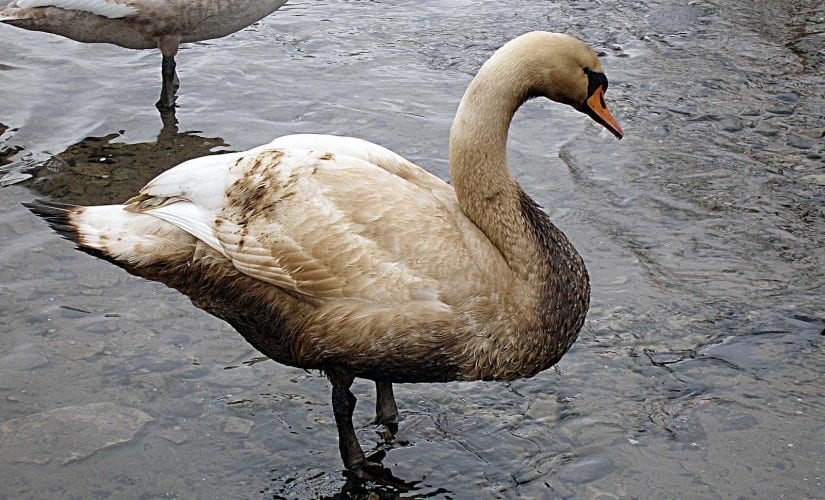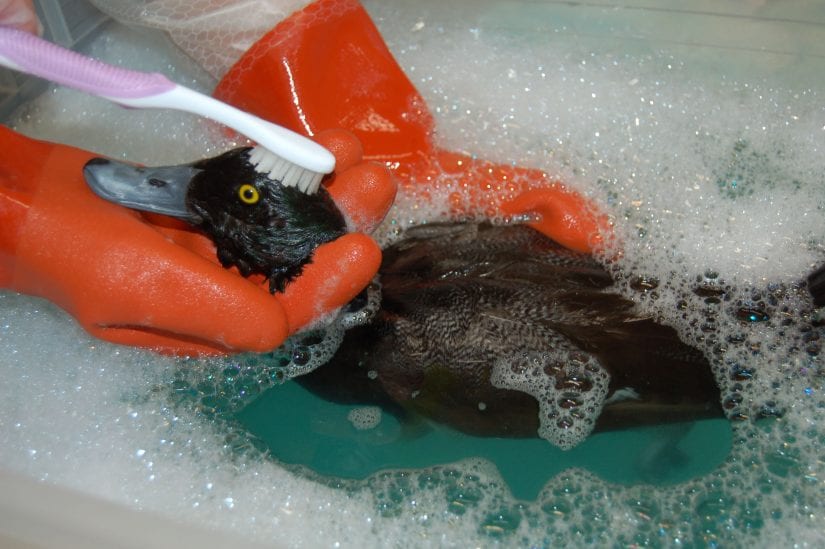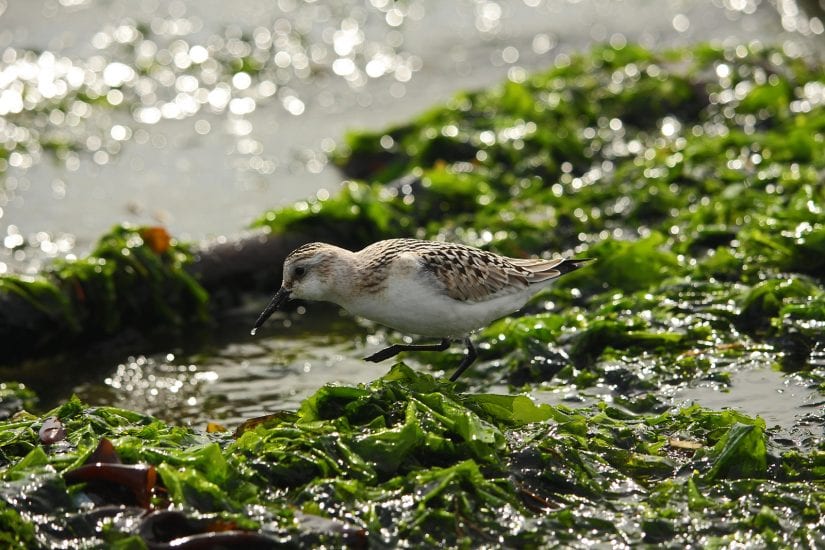Report an oil or pollution spill of any size immediately—your call could help save a life! If possible, take photos of the spill and the animals involved to send to authorities.
Pollution hotline 1-800-663-3456
Hotline staff will notify either provincial or federal government agencies (Ministry of Environment, Coast Guard, Environment Canada) depending on the location and species of wildlife involved. If you do not see a clean-up response within 24 to 48 hours, call again; the frequency of calls increases the likelihood of response.
Don’t try to wash an oiled wild animal yourself, always call a professional wildlife rehabilitator. Contact your local wildlife rehabilitator or call our Animal Helpline at 1-855-622-7722 for advice.

What happens to wildlife in an oil spill?
All animals—birds, mammals, reptiles and amphibians—can be severely affected by petroleum products and food oils. Even a little bit of oil or grease should be cleaned off by a professional.
For a bird, oil penetrates the waterproof layer of its feathers compromising its ability to stay warm. It can also poison the bird as it tries to clean the oil off its feathers. Inhaling or swallowing these toxic compounds can cause damage to its liver, lungs, kidneys and other internal organs.
Within hours or days, birds can die of hypothermia unless their feather system is repaired. Oiled birds can also lose flight and buoyancy and are unable to feed, which can quickly lead to dehydration and starvation.
Mammals, reptiles and amphibians can all be affected by oily substances and should also get immediate care from professionals.
Never attempt to wash a wild animal yourself. Oil and other substances can be very toxic to you, your family and pets. Always contact a professional wildlife rehabilitator.

How is the BC SPCA involved in oil spills?
Wild ARC is the BC SPCA’s only wildlife rehabilitation centre, and has limited capacity to treat oiled patients locally. However, the BC SPCA is a founding member of the Oiled Wildlife Society of BC and works collaboratively with other organizations as a member of the Oiled Wildlife Trust. In 2011, together we published a report on the status oiled wildlife preparedness and the potential effects of the Northern Gateway Project proposal (PDF).
The BC SPCA has previously responded to small-scale canola oil spills, providing staff and resources in the form of rescue, transport, supplies and volunteer management. We recognize the increasing complexity of oiled wildlife response in terms of animal care and logistics, as well as the need to be up-to-date on practices and supplies.
Professional oiled wildlife response companies can be hired to help at major and minor spills internationally, providing an expert response to these wildlife incidents.
How can I get involved?
Never attempt to wash a wild animal impacted by oil or other pollution yourself. Always contact a professional wildlife rehabilitator and report the spill to government authorities.
You can take first responder training courses from the Oiled Wildlife Society of BC. Volunteers with current wildlife rehabilitation experience can be recruited in a large spill response, so look into volunteer opportunities at your local rehabilitation centre.

